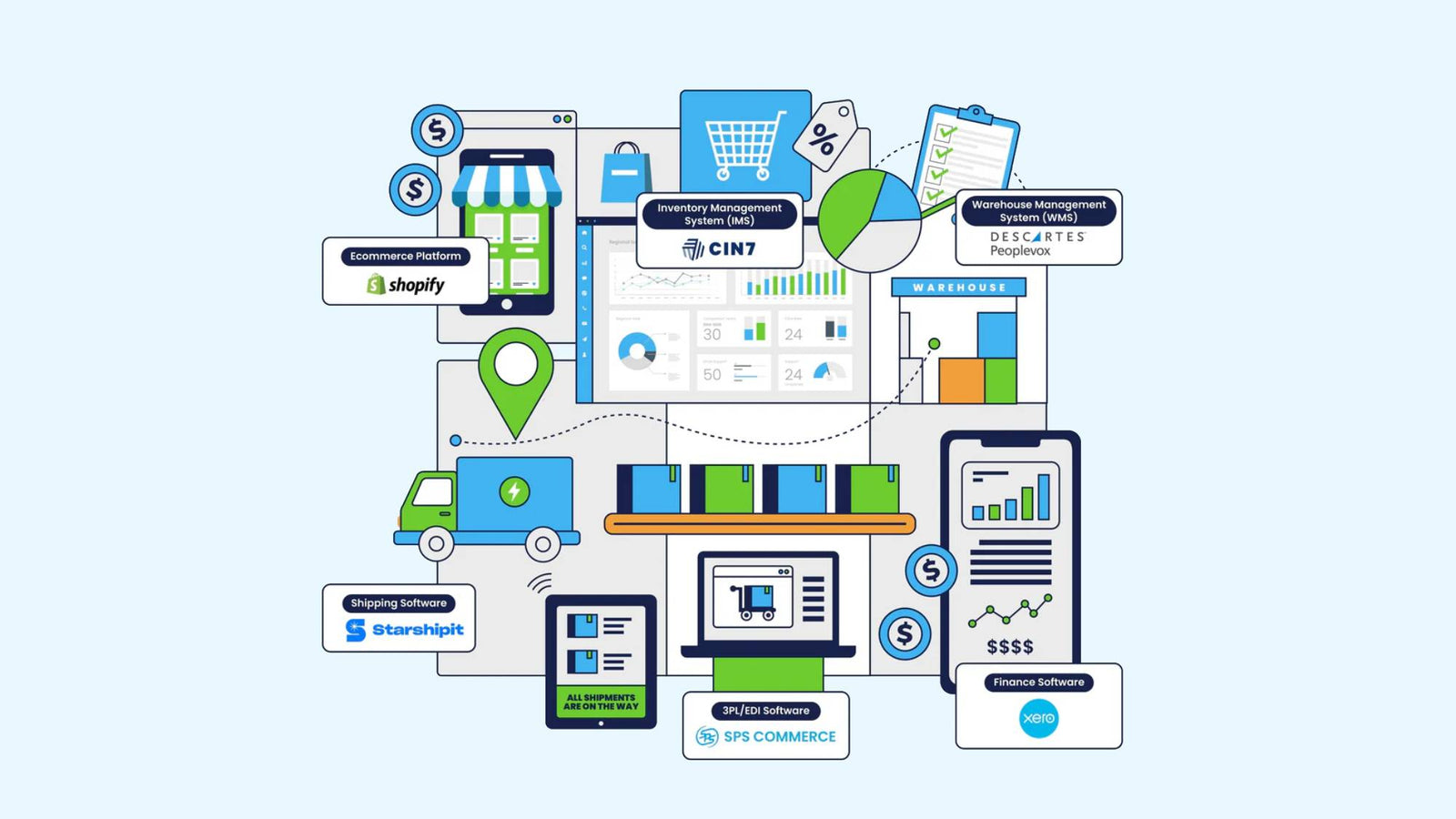Your Cart is Empty
Menu

Prepayments: The Secret to Smoother Cash Flow and Happier Customers for SMBs
December 03, 2024

Running a small to medium business that sells inventory can feel like a high-wire act without a safety net. You're constantly balancing cash flow, managing stock levels, and ensuring customer satisfaction—all while trying to keep your business growing. What if there was a way to make this balancing act a little easier? Enter prepayments. This strategy can be a game-changer for your business, providing both financial stability and peace of mind.
Before we dive in, let's break down some key terms so we're all on the same page:
Glossary of Terms
- Prepayment: Think of this as paying ahead of time. It's an advance payment made before your customer receives their goods or services. Prepayments do affect your Stock on Hand (SOH) because the stock is reserved and removed from available inventory once the prepayment is made.
- Deposit: This is a partial payment made upfront to secure an order. It's like a down payment that shows commitment from your customer. Deposits also typically reserve the stock, affecting your SOH by marking the items as allocated and ensuring they are not sold to someone else.
- Payment Gateway: This service handles credit card payments for both online and physical stores. It's the bridge between your customer's bank and your business. Payment gateways themselves don't affect SOH; they simply facilitate the transaction.
- Payment Platform: A robust system that not only processes payments but also manages tasks like credit checks, automatic reconciliation, and securely storing payment details. While the payment platform handles financial transactions, it can be integrated with your inventory system to ensure SOH is updated once the payment is processed and the order is fulfilled.
- COGS (Cost of Goods Sold): These are the direct costs involved in producing the goods you sell, like materials and labor. COGS are calculated when stock is sold and removed from inventory, impacting your financial statements but not directly altering SOH.
Unlocking the Power of Prepayments
Think of a prepayment as a financial handshake. It's an advance payment from a customer that secures their order and shows they're committed. This often takes the form of a deposit, giving both you and your customer peace of mind.
Why Prepayments Can Transform Your Business
Better Cash Flow:
- Immediate Funds: Are you tired of waiting for payments to trickle in while your bills pile up? Receiving a deposit upfront means you have immediate funds to manage operational costs. This can be particularly beneficial during slower sales periods or when facing unexpected expenses.
- Order Financing: Ever found yourself struggling to cover the upfront costs of a large order? Prepayments can help you finance the procurement of products, especially those with longer lead times, without putting a strain on your resources. For instance, if you're importing goods that take several weeks to arrive, having the deposit can cover the initial costs, reducing the financial burden on your business.
Customer Commitment:
- Secure Orders: Frustrated by last-minute cancellations? A deposit ensures that the customer is serious about their purchase, reducing the risk of cancellations. This is especially important for custom or high-value items where the financial risk is higher.
- Demand Forecasting: Struggling to predict how much inventory to stock? Prepayments can give you a sense of how much demand there is for new products. By analyzing the volume of prepayments, you can make more informed decisions about inventory levels and production schedules, reducing the risk of overstocking or stockouts.
Reduced Financial Risk:
- Less Risk: Worried about being left out of pocket if a customer changes their mind? By securing a deposit, you lower the financial risk associated with high-value or custom orders. This can be particularly valuable for businesses dealing with expensive inventory or items that require significant customization.
Key Considerations for Implementing Prepayments
System Integration:
- Payment Systems: Are you bogged down by manual payment processes? Integrating a robust payment system like Pinch Payment or Pencil Payment can make the prepayment process smoother and reduce manual errors. These systems can automate payment collection, track deposits, and update your accounting software, saving you time and reducing the risk of mistakes.
- Software Compatibility: Worried about how a new payment system will fit with your existing tools? Ensure your payment system works well with your existing platforms, such as your inventory management and accounting software. This integration can streamline your operations, providing real-time visibility into your financials and inventory levels.
Customer Experience:
- User-Friendly: Concerned about making the payment process easy for your customers? Offer multiple payment options, such as credit cards, bank transfers, and digital wallets, and ensure the process is straightforward. A seamless payment experience can enhance customer satisfaction and encourage repeat business.
- Clear Communication: Want to avoid misunderstandings with your customers? Be upfront about the terms and conditions of prepayments. Clearly explain the refund policy, delivery timelines, and any other relevant details, so customers know what to expect.
Accounting Implications:
- Revenue Recognition: Confused about how to handle prepayments in your books? Understand the tax implications of prepayments. Prepayments on quotes are treated as liabilities and not recognized as revenue until the order is fulfilled. This means you need to track these funds separately and ensure they are correctly accounted for in your financial statements.
- Cost of Goods Sold (COGS): Wondering how prepayments affect your financial reporting? Be aware that COGS are not generated until the goods are dispatched. This can affect your financial reporting and margin calculations. Properly managing these accounting aspects can provide a clearer picture of your business's financial health and performance.
How Prepayments Make a Difference
To give you a better idea of how prepayments can work in practice, let's look at a couple of fictitious examples and how integrating a payment solution can make all the difference:
The Boutique Furniture Store:
- Scenario: Sookie runs a boutique furniture store that specialises in custom-made pieces. Each item takes several weeks to produce.
- Challenge: Sookie needs to ensure she has the funds to cover the cost of materials and labor upfront. Manually tracking deposits and reconciling them with final payments is time-consuming and prone to errors.
- Solution: By implementing a prepayment system like Pencil Pay, Sookie asks for a 50% deposit when customers place their orders. This not only secures the customer's commitment but also provides Sookie with the cash flow needed to start production without financial strain. Pencil Pay automates the tracking and reconciliation of these deposits, freeing up Sookie's time and reducing the risk of financial discrepancies.
The Specialty Wine Retailer:
- Scenario: Deepak owns a specialty wine shop and occasionally imports exclusive vintages that require a significant upfront investment.
- Challenge: Deepak needs to gauge interest and secure funds before placing large orders. Manually handling prepayments means a lot of paperwork and potential for errors.
- Solution: Deepak uses Pinch Payment to take deposits from customers interested in these exclusive wines. This approach helps him accurately forecast demand and ensures he has the necessary funds to cover the cost of importing the wines, reducing his financial risk. Pinch Payment's integration with his inventory and accounting systems automates the entire process, making it seamless and error-free.
By integrating payment solutions like Pinch Payments and Pencil Pay, businesses like Sookie's and Deepak's can streamline their prepayment processes, reduce manual work, and minimise errors. This not only improves operational efficiency but also enhances customer satisfaction by providing a smooth and professional experience.
Ready to Transform Your Payment Process?
At SMB Consultants, we specialise in connecting payment systems with your existing platforms and workflows. This integration helps streamline your prepayment process, reducing manual work and potential errors.
If managing your prepayments is starting to wear you down or you want to optimise your payment processes, reach out to us for a free chat.
Also in SMB Blog

From Chaos to Clockwork: Building a Fulfillment Stack That Just Works
October 06, 2025
Disconnected systems drain time, money, and energy from your business. Learn how connecting your core platforms - Shopify, Cin7, PeopleVox, Starshipit, SPS Commerce, and Xero - creates a smooth, automated flow from order to accounting. Discover how integration transforms chaos into clarity, freeing your team to focus on growth.

Holiday Forecasting Strategies: How to Prepare for Black Friday & Christmas
September 11, 2025
Black Friday and Christmas bring both opportunity and risk for product-selling businesses. With the right forecasting tools and accurate data, you can avoid stockouts, protect cash flow, and keep customers happy during the busiest season of the year.

The Inventory Iceberg: What's Hiding Below Your Balance Sheet
June 16, 2025
Inaccurate inventory is like an iceberg—what you see above the waterline is just a fraction of the problem. The hidden costs of inventory inaccuracies can silently affect every area of your business, from financial losses to damaged customer relationships. Discover how partnering with SMB Consultants can help you navigate these treacherous waters and transform inventory management from a constant worry into a strategic advantage.